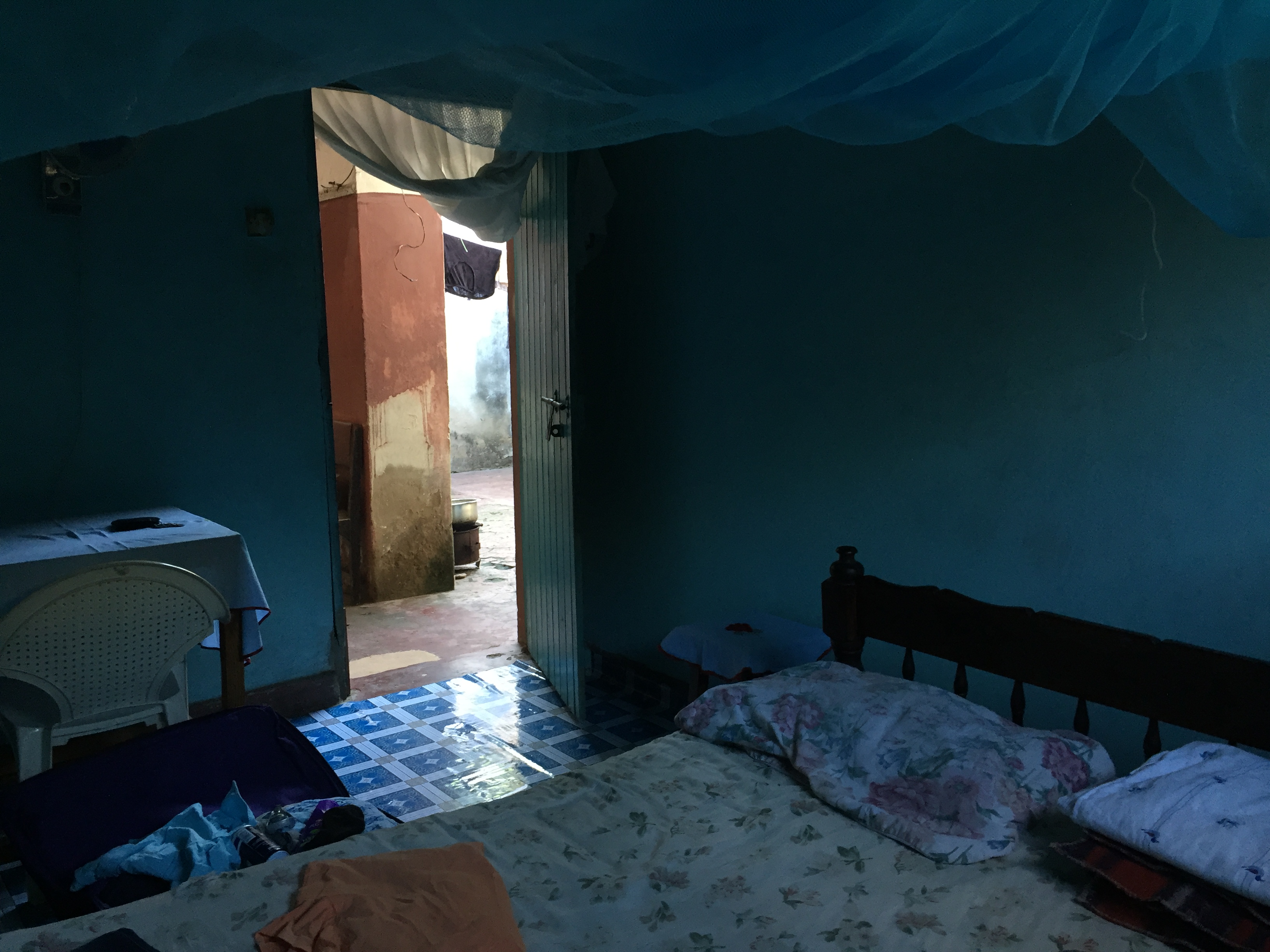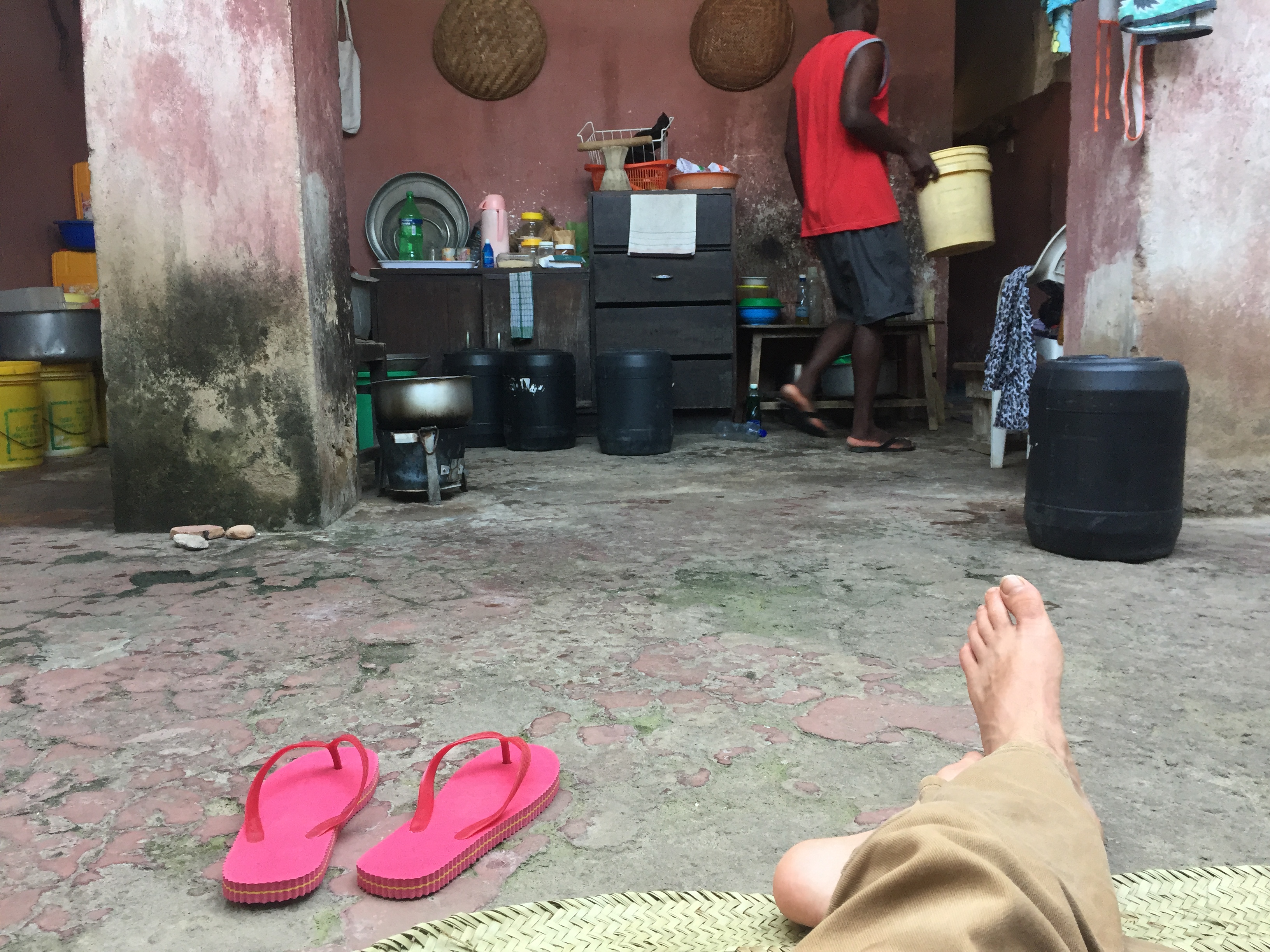Today begins the second half of my study abroad program. I am moving in with a new host family in the port city of Mombasa and will tomorrow start my research internship at the Association for the Physically Disabled of Kenya. As I write this I’m sitting in my new bedroom in a house quite different from any place I’ve previously lived.
This morning I was filled with apprehension, boarding an train in a daze. I trudged through a portion of a book to keep from worrying, maybe getting 70 pages in during the more-than-five-hour journey. It certainly didn’t help that my companion was ill and in no place to talk. Upon arrival, I was at least relieved by the familiar sight of the Mombasa rail terminus, and realized there was no turning back. Once again we drove through the coastal city, passing landmarks I recognized from my previous stay. It was at this point that I was informed my homestay was to be quite a bit more rural than I had previously experienced, which gave me quite a bit of both apprehension and curiosity.

My host mother met me in the parking lot of a local mall. After saying goodbye to my classmate Alyssa and her own host mother, we departed for my new home. In contrast to my previous experience of Mombasa from within a five-star beach hotel, my new lodging was in a more densely-populated and more informally-constructed settlement. The houses in this area do not have running water, and are not self-contained insulated houses as one finds in most Western countries but rather a set of independent bedrooms opening up into a central patio area which is itself enclosed by the wall of a neighboring house. The bedrooms are fairly barebones, with mine containing a full-size bed topped with an ill-fitting mosquito net, a small desk with plastic chair, and 1 sq. ft nightstand. A single fan, about two feet in diameter, provides my only cooling. Because there is only one electrical outlet, it cannot presently be operated simultaneously with a laptop charger, meaning I’m going to get quite hot if I try to work during the day. The central patio is densely utilized, with clotheslines above and kitchen equipment below. Everything sits out in the open, exposed to the light coastal breeze. The house’s front is a metal grille, as my host mother previously operated it as a small shop for necessities such as flour and toiletries. Today the storefront is boarded up and cobwebs take the place of toothpaste, but my mother remains hopeful she’ll someday be able to restart her shop. The house also contains a quaint living room, complete with one 10-inch television and a dozen portraits of Christ. This is where I enjoyed my first meal, very spicy pilau and kachumbari.

After torturing my mouth with the first spicy food I’d had in a good while, I began to get acquainted with my new family. My mother was laying on a mat in the patio, having kicked off her shoes and enjoying the serenity of the open air. A light breeze provided respite from the beating equatorial sun, causing the clothes on the line, full of color and variety, to flap back and forth. Birds flocked to and fro the century-old mango tree that towers over the neighborhood as the only visible object looking up out of the patio. I was welcomed onto the soft mat, and a bottle of freshly-squeezed passionfruit juice was quickly whisked over. As I followed with my eyes a lone gecko wandering the walls, my mother vibrantly discussed her children's educations as much as she sought the story of my own. And, as has become custom during my stay in Africa, I responded to inquiry of how I was dealing with the tropical weather by regaling my hosts with an exaggerated rendition of the Chicago blizzard of '67. All three children are in post-secondary education, at varying levels. They are all quite driven, yet within the bounds of the relaxed pace at which most Mombasans prefer to live.
Without running water, many of the practices to which I am accustomed require a bit more effort, yet it is not so different in practice. Squat toilets are the norm here, and it is necessary to pour out a cup of water in order to rinse the bowl after use. Showering is done by repeatedly pouring out a pitcher on my own head, and is somewhat pleasant as long as the water is warm. Handwashing is a bit awkward due to hands being the same appendages used to pour the pitcher of water for rinsing, but I’m sure I’ll get the hang of it. I guess running water isn’t all it’s cracked up to be.
I really think I’ll like it here. ❧